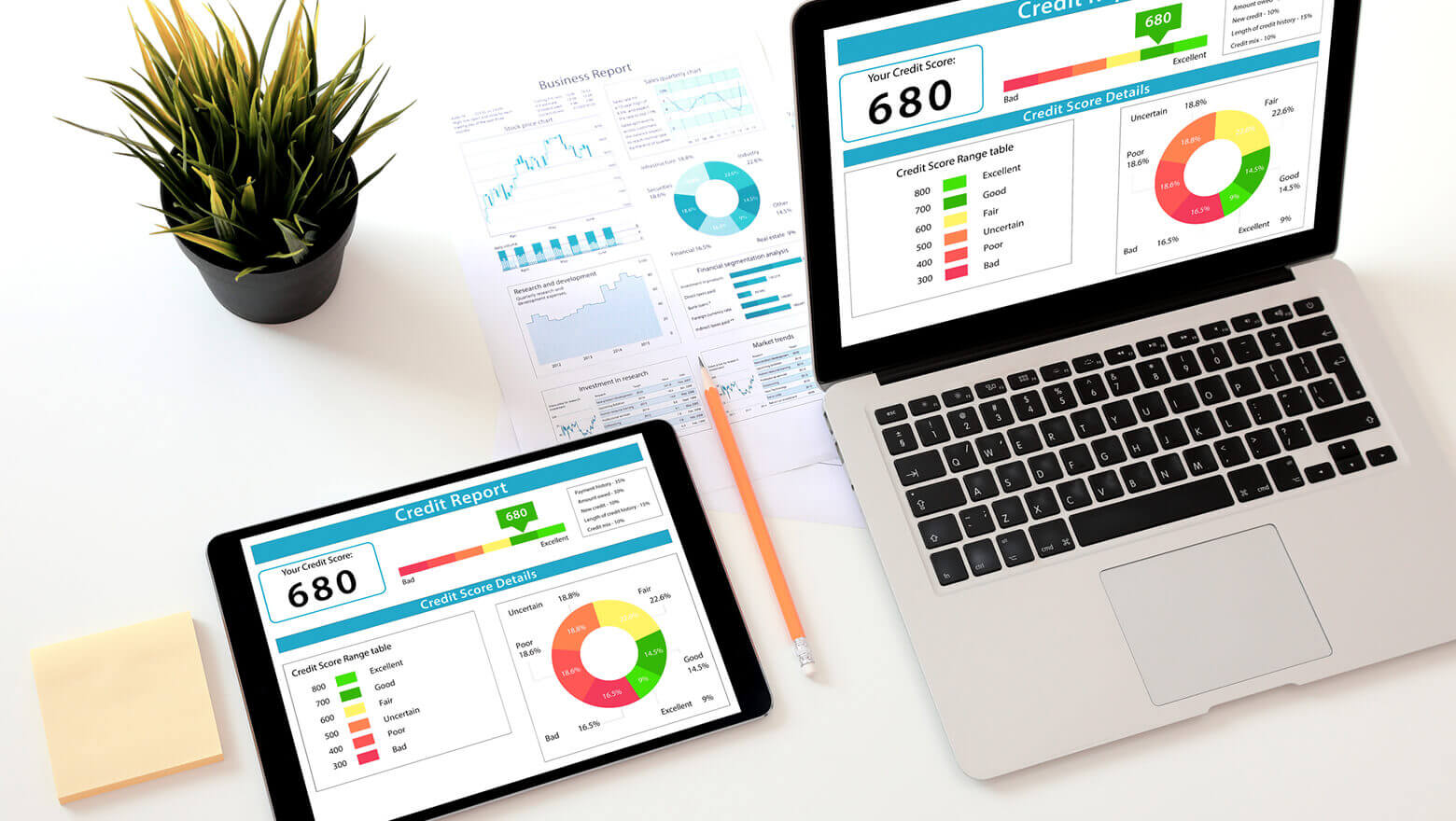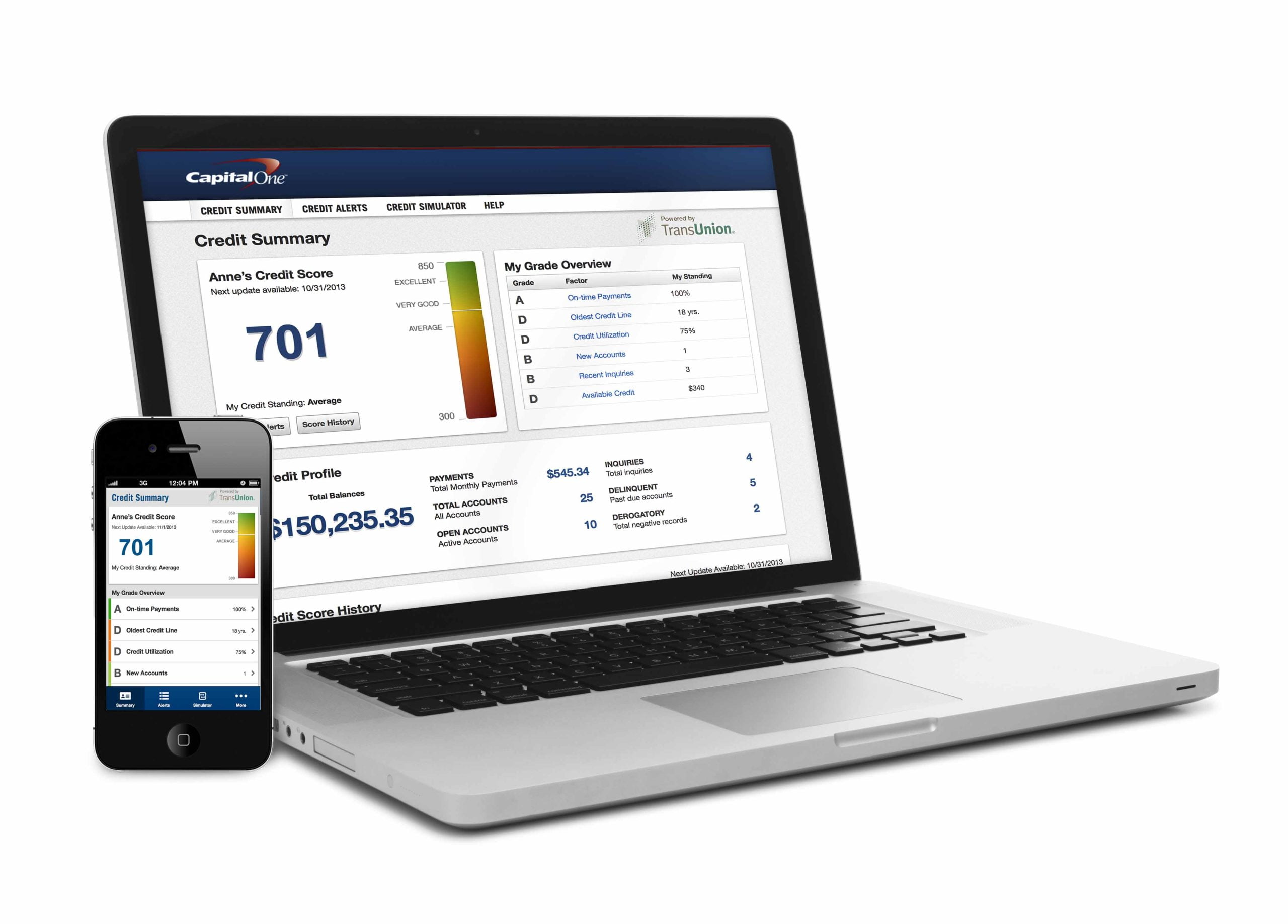

Finance
How Often Does Experian Update Credit Scores
Modified: March 6, 2024
Discover how often Experian updates credit scores and stay on top of your financial health. Stay informed with the latest changes to your credit rating.
(Many of the links in this article redirect to a specific reviewed product. Your purchase of these products through affiliate links helps to generate commission for LiveWell, at no extra cost. Learn more)
Table of Contents
- Introduction
- Understanding Experian Credit Scores
- Importance of Regular Credit Score Updates
- Factors Influencing Experian Credit Score Updates
- Frequency of Experian Credit Score Updates
- Impact of Updates on Credit Scores
- Benefits of Regular Credit Score Monitoring
- Tips for Improving Experian Credit Scores
- Conclusion
Introduction
When it comes to managing your finances and making important financial decisions, having a clear understanding of your credit score is crucial. Your credit score is a three-digit number that lenders use to assess your creditworthiness and determine the interest rates and terms they offer you for loans and credit cards.
One of the major credit bureaus that provides credit scores is Experian. Experian collects and analyzes financial data from various sources to generate credit scores that reflect an individual’s creditworthiness.
In this article, we will explore the importance of regular credit score updates provided by Experian. We will delve into the factors that influence the frequency of these updates and the impact they can have on your credit scores. Additionally, we will discuss the benefits of regularly monitoring your credit scores and provide some tips to help you improve your Experian credit scores.
Whether you are planning to apply for a loan, get a mortgage, or simply want to keep track of your financial health, understanding how often Experian updates credit scores is vital.
So, let’s delve into the world of Experian credit scores and discover the significance of staying up-to-date with your creditworthiness!
Understanding Experian Credit Scores
Experian credit scores are calculated based on a mathematical algorithm that analyzes various factors related to your credit history. These factors include your payment history, credit utilization, length of credit history, types of credit accounts, and new credit inquiries.
The credit scores provided by Experian range from 300 to 850, with a higher score indicating a better creditworthiness. A high credit score demonstrates to lenders that you are responsible in managing your finances, making you more likely to be approved for loans and credit cards at favorable interest rates.
Experian also provides credit reports, which contain detailed information about your credit history, including your credit accounts, payment history, and any negative information such as late payments or bankruptcies.
It’s important to note that each credit bureau, including Experian, may have slightly different methods and algorithms for calculating credit scores. However, Experian’s credit scores are widely used by lenders and financial institutions to assess creditworthiness.
Understanding your Experian credit score is essential in monitoring your financial health and identifying areas where you can improve. By regularly checking your credit score, you can ensure there are no errors or inaccuracies that could negatively impact your creditworthiness.
Now that you have a basic understanding of how Experian credit scores work, let’s explore why regular updates of your credit score are important.
Importance of Regular Credit Score Updates
Regular updates of your credit score provided by Experian are crucial for several reasons:
- Monitor Changes: By checking your credit score regularly, you can stay informed about any changes or fluctuations in your creditworthiness. This allows you to quickly address any issues or inaccuracies that may arise and take the necessary steps to rectify them.
- Identify Areas of Improvement: Regular credit score updates can help you identify areas where you can improve your creditworthiness. For example, if your credit utilization ratio is high, you can focus on paying down your balances to lower it, which can positively impact your credit score.
- Track Financial Progress: Monitoring your credit score over time allows you to track your financial progress. Whether you are working on rebuilding your credit history or maintaining a good credit score, regularly checking your credit score provides a clear picture of how your efforts are paying off.
- Prepare for Financial Decisions: Timely credit score updates help you prepare for important financial decisions. If you are planning to apply for a loan or mortgage in the near future, knowing your credit score beforehand allows you to assess your eligibility and negotiate better terms.
- Protect Against Identity Theft: Regularly monitoring your credit score enables you to detect any suspicious activity that could indicate identity theft. If you notice any unauthorized accounts or credit inquiries on your report, you can take immediate action to prevent further damage.
In summary, regular credit score updates from Experian provide you with valuable information to assess your creditworthiness, identify areas for improvement, track your financial progress, and protect yourself against fraudulent activities. It is essential to make credit score monitoring a habit to maintain good financial health and make informed financial decisions.
Factors Influencing Experian Credit Score Updates
Experian credit score updates are influenced by various factors that reflect your creditworthiness and financial behavior. Understanding these factors can help you better comprehend how your credit score may change over time. Here are some key factors that influence Experian credit score updates:
- Payment History: Your payment history is one of the most significant factors affecting your credit score. Making timely payments on your credit accounts demonstrates responsible financial behavior, while late or missed payments can have a negative impact on your credit score.
- Credit Utilization: Credit utilization refers to the percentage of your available credit that you are currently using. Using a large portion of your available credit can suggest a higher credit risk and may lower your credit score. Keeping your credit utilization ratio below 30% is generally recommended for maintaining a healthy credit score.
- Length of Credit History: The length of your credit history is also considered. The longer you have a credit history, the more information lenders have to assess your creditworthiness. Responsible management of credit accounts over time can positively impact your credit score.
- Credit Mix: Having a diverse mix of credit accounts, such as credit cards, loans, and mortgages, can contribute positively to your credit score. It demonstrates your ability to manage different types of credit responsibilities.
- New Credit Applications: When you apply for new credit, such as a loan or credit card, it results in a hard inquiry on your credit report. Multiple recent inquiries can suggest a higher credit risk and may lower your credit score temporarily. It is important to limit the number of new credit applications to mitigate any negative impact.
- Negative Information: Negative information on your credit report, such as late payments, defaults, or bankruptcies, can significantly lower your credit score. It is crucial to address and resolve any negative information to improve your creditworthiness.
Keep in mind that these factors interact with each other, and the importance of each factor may vary depending on your individual circumstances. Additionally, other factors, such as your income, employment history, and public records, may also be considered by lenders but are not directly reflected in your Experian credit score.
By understanding these important factors, you can make informed financial decisions and take steps to improve your creditworthiness. The frequency of Experian credit score updates will now be explored in the next section.
Frequency of Experian Credit Score Updates
The frequency of credit score updates provided by Experian can vary depending on several factors. While Experian aims to provide timely and accurate updates, it’s essential to understand the typical patterns of credit score updates.
In general, Experian receives updated credit information from lenders and financial institutions on a monthly basis. This means that your credit score is likely to be updated once a month based on the latest data available to Experian.
However, it’s important to note that not all lenders report to credit bureaus at the same time or with the same frequency. Some lenders may report to Experian more frequently than others, while others may report only on a quarterly or even annual basis. This can result in variations in the frequency of credit score updates.
In addition to the reporting patterns of lenders, the timing of credit score updates can also be influenced by the individual’s credit activity. If there have been significant changes in your credit accounts, such as a new loan or credit card application, or a large credit utilization shift, it may trigger an update in your credit score.
It’s important to understand that while Experian aims to provide monthly credit score updates, there may be slight delays in receiving and processing the updated information. Therefore, it is recommended to check your credit score regularly to stay informed about any changes in your creditworthiness.
Fortunately, with the advancement of technology, there are numerous credit monitoring services available that provide real-time credit score updates. These services can notify you whenever there is a change in your credit score, allowing you to stay on top of your financial health.
Remember, credit score updates are just snapshots of your creditworthiness at a particular point in time. Regularly monitoring your credit score gives you a more comprehensive view and enables you to identify trends and patterns in your credit behavior.
In the next section, we will explore the potential impact of credit score updates on your overall creditworthiness.
Impact of Updates on Credit Scores
The updates to your credit score provided by Experian can have a significant impact on your overall creditworthiness. These updates reflect changes in your credit history and financial behavior, which can result in fluctuations in your credit score. Here are a few key points to consider regarding the impact of updates on credit scores:
- Positive Changes: If you have been making timely payments, reducing your credit utilization, and responsibly managing your credit accounts, the updates to your credit score may reflect these positive changes. This can lead to an increase in your credit score and improved creditworthiness.
- Negative Changes: On the flip side, if you have missed payments, increased your credit utilization, or experienced negative events like defaults or collections, the updates to your credit score may reflect these negative changes. This can result in a decrease in your credit score and potentially lower your creditworthiness.
- Temporary Fluctuations: It is important to note that minor fluctuations in credit scores are common and can occur as part of the normal credit reporting process. These fluctuations are typically temporary and may not necessarily indicate a significant change in creditworthiness.
- Long-Term Impact: While individual credit score updates may have a temporary impact, consistently positive or negative changes in your credit history over time can have a lasting impact on your credit score and overall creditworthiness. Responsible credit management and maintaining good financial habits are key to achieving a positive long-term impact on your credit scores.
It’s also worth mentioning that the impact of updates can vary for different individuals and their specific credit profiles. The weight given to each factor in the credit score calculation, such as payment history or credit utilization, may differ based on individual circumstances and previous credit behavior.
Ultimately, understanding the impact of updates on credit scores emphasizes the importance of consistently maintaining good credit habits. Regularly monitoring your credit score and addressing any negative changes promptly can help you take control of your creditworthiness and work towards achieving a healthier financial future.
Next, let’s explore the benefits of regularly monitoring your credit scores.
Benefits of Regular Credit Score Monitoring
Regularly monitoring your credit scores provided by Experian offers several valuable benefits that can positively impact your financial health. Here are some key advantages of staying on top of your credit score:
- Early Detection of Errors: By monitoring your credit score regularly, you can quickly identify any errors or inaccuracies in your credit report. Discrepancies such as incorrect personal information, erroneous accounts, or missed payments can negatively affect your creditworthiness. Detecting and correcting these errors promptly can help prevent any potential damage to your credit reputation.
- Guard Against Identity Theft: Regularly monitoring your credit scores can help you detect any signs of unauthorized activity that may indicate identity theft. If you notice unfamiliar accounts, credit inquiries, or suspicious transactions on your credit report, you can take immediate action to safeguard your identity and prevent further fraudulent activity.
- Track Financial Progress: Monitoring your credit scores over time allows you to track your financial progress and determine the effectiveness of your credit management efforts. Observing positive changes in your credit scores can provide motivation and a sense of accomplishment, while identifying areas for improvement helps you strategize and work towards financial goals.
- Prepare for Financial Opportunities: Knowing your credit scores in advance gives you a better understanding of your creditworthiness before applying for loans, mortgages, or credit cards. This enables you to make informed decisions and negotiate favorable terms with lenders, potentially saving you money in interest rates or obtaining higher credit limits.
- Improve Credit Habits: Regularly monitoring your credit scores serves as a reminder to maintain healthy credit habits. When you see the impact of responsible financial behavior on your credit scores, such as paying bills on time, keeping credit utilization low, and avoiding excessive new credit applications, it reinforces the importance of these habits and motivates you to continue practicing them.
- Stay Proactive and Informed: Being proactive in monitoring your credit scores ensures that you are aware of any changes or potential red flags in your credit history. This empowers you to take necessary actions, such as dispute resolution, credit counseling, or debt repayment strategies, to manage your credit effectively.
By regularly monitoring your credit scores, you gain valuable insights into your financial health, protect yourself against identity theft, and have the opportunity to improve your creditworthiness over time. It’s an essential practice for anyone who wants to maintain good financial standing and make informed decisions related to credit and loans.
Now, let’s explore some tips to help you improve your Experian credit scores.
Tips for Improving Experian Credit Scores
If you’re looking to improve your Experian credit scores, there are several strategies you can implement to enhance your creditworthiness. Here are some valuable tips to help you boost your credit scores:
- Pay Bills on Time: Consistently making on-time payments is one of the most crucial factors in building and maintaining a good credit score. Set up reminders or automatic payments, if possible, to ensure you never miss a payment.
- Lower Credit Utilization: Keeping your credit utilization ratio below 30% is recommended. Paying down your credit card balances, consolidating debt, or requesting credit limit increases can help lower your credit utilization and improve your credit scores.
- Monitor Credit Inquiries: Limit the number of new credit applications you make, as multiple inquiries within a short period can negatively impact your credit scores. Only apply for credit when necessary and consider pre-qualification options to gauge your likelihood of approval.
- Diversify Credit Accounts: Having a mix of different types of credit accounts, such as credit cards, loans, or a mortgage, can positively impact your credit scores. However, don’t apply for new credit indiscriminately just to diversify; only do so when it aligns with your financial goals.
- Regularly Review Your Credit Reports: Check your credit reports from all three major credit bureaus, including Experian, for accuracy. Dispute any errors or inconsistencies that you find, as they can impact your credit scores. Consider taking advantage of the free annual credit report available to you.
- Manage Existing Accounts: Keep your existing credit accounts open and active, as a longer credit history can positively impact your credit scores. Make small purchases and pay them off on time to maintain a positive credit history with these accounts.
- Limit Credit Card Balances: Minimize high credit card balances, as they can negatively affect your credit scores. Pay off outstanding balances or consider balance transfers to reduce interest and boost your creditworthiness.
- Avoid Negative Credit Behavior: Avoid actions that can negatively impact your credit scores, such as late payments, defaults, foreclosure, or bankruptcy. Focus on building a positive credit history and managing your finances responsibly.
- Seek Professional Guidance: If you’re facing challenges in improving your credit scores, consider seeking the assistance of a credit counselor who can provide personalized advice and guidance tailored to your specific situation.
Remember, improving your credit scores takes time and consistent effort. Focus on building positive credit habits, managing your debts responsibly, and maintaining financial discipline. Over time, you’ll see your Experian credit scores improve, which opens up opportunities for better financial options and favorable interest rates.
Now, let’s summarize what we’ve learned so far.
Conclusion
Understanding and regularly monitoring your Experian credit scores is essential for maintaining good financial health. By staying informed about your creditworthiness, you can proactively manage your finances, make informed financial decisions, and work towards improving your credit scores.
In this article, we explored the importance of regular credit score updates, the factors that influence Experian credit score updates, and the potential impact of these updates on your creditworthiness. We also discussed the benefits of monitoring your credit scores regularly and provided tips to help you improve your Experian credit scores.
Remember that maintaining a good credit score requires responsible credit management, including making timely payments, keeping credit utilization low, and managing your credit accounts effectively. It’s also crucial to regularly review your credit reports from all three major credit bureaus and address any errors or inconsistencies promptly.
By following these best practices, you can build a positive credit history, increase your creditworthiness, and gain access to better financial opportunities in the future.
So, make it a habit to regularly monitor your Experian credit scores and take the necessary steps to improve your creditworthiness. Your financial future will thank you!













